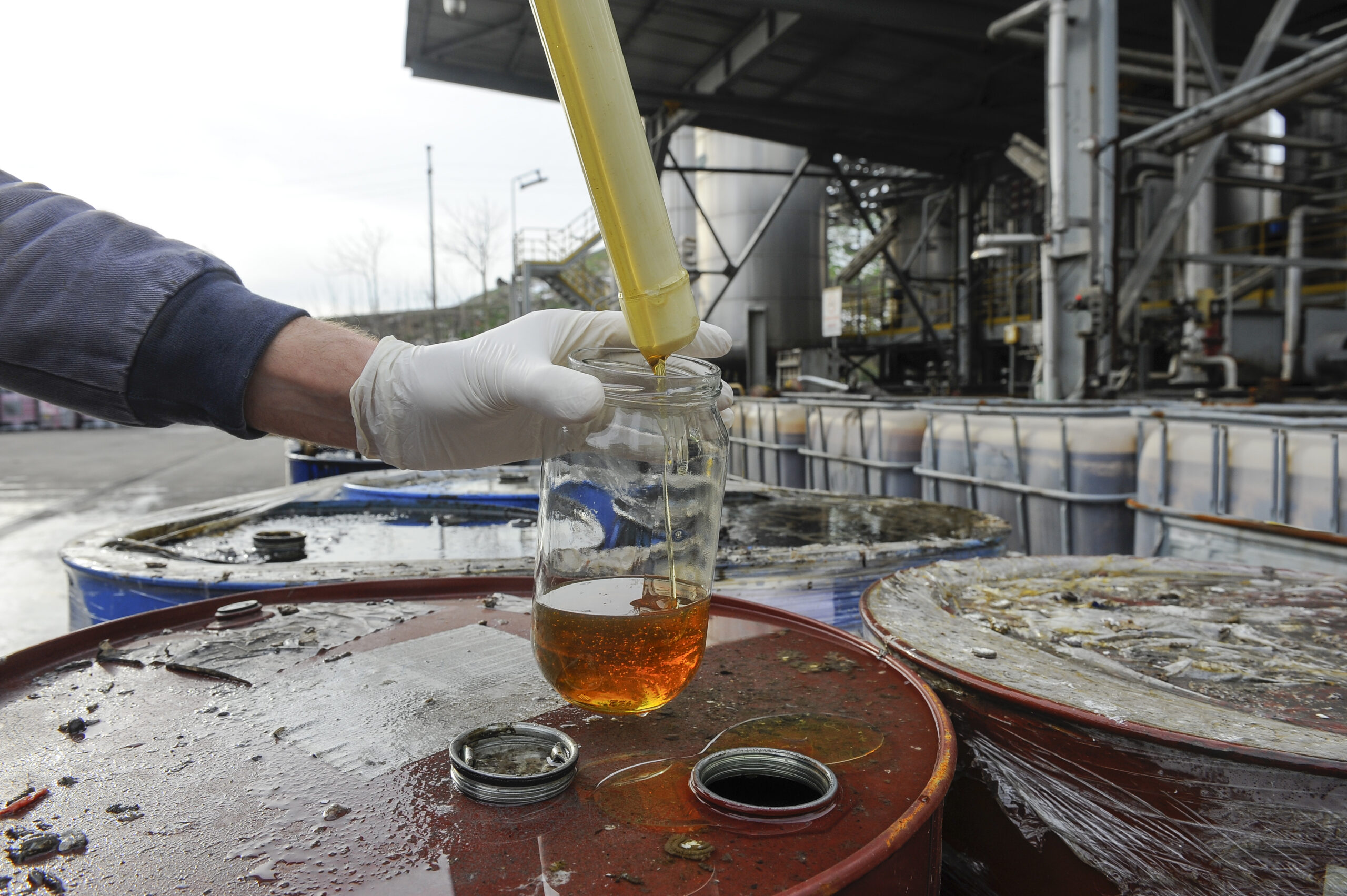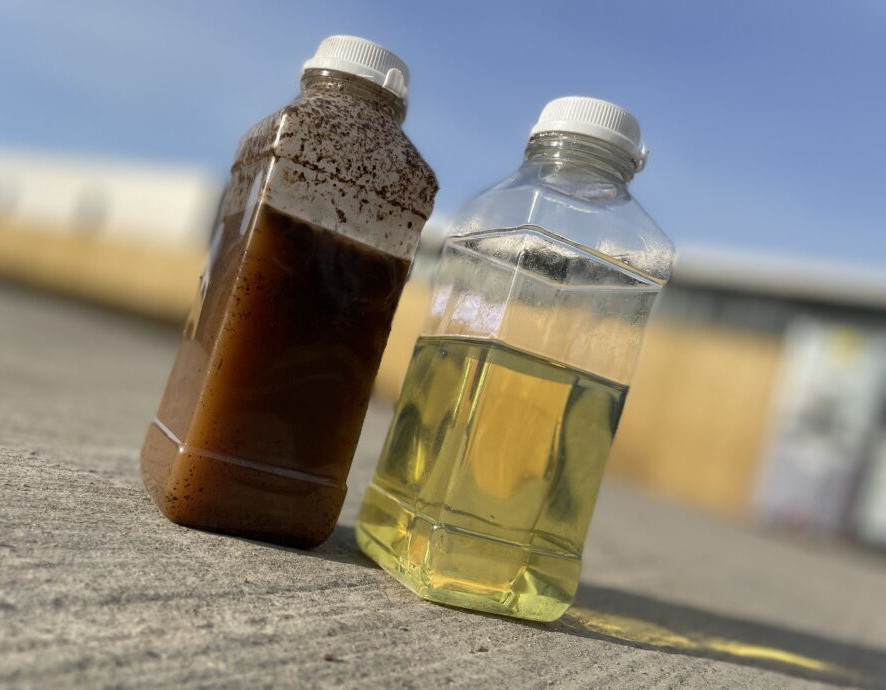
FUEL SAMPLING
Fuel sampling is a process to determine if you have contaminations in your fuel. If you do, we can also determine how bad it is.

We inspect the fuel using the industry-standard testing method. This is the best way to detect most contaminations. An in-depth laboratory test can also tell us if there are small traces of contamination compromising the quality of your fuel.
If you have a long-term storage tank for fuel, it is highly likely you will have a degree of contamination. This can lay undetected until it impacts your business.
Modern Diesel fuels are blended with FAME to improve our environmental impact. These blends are hygroscopic and naturally attract water. They can also impact the fuels’ natural ability to shed water, creating a cloudy product. When water mixes with the fuel it starts a natural life cycle of microbes. These tiny bugs live at the interface between the fuel and water, they start to breed and defecate, producing a sludge in the bottom of the tank. All these elements can have a detrimental effect on the performance of the fuel.
Fuel sampling FAQ:
How long does the test take?
We conduct an onsite test with our specialised equipment. This will give us results tested to ISO Standard 4406 within 30 minutes. We can conduct further testing to tell us if there are more serious problems, this can take up to a week to complete.
What happens if the fuel fails the test?
If the fuel fails, we will advise you on the steps that you need to take. 95% of the time you will not need to take any immediate action and your business can continue as normal.
Why do I need to have my fuel tested?
Diesel has an additive that attracts water. This then creates the problem of diesel-bug which happens at the bottom of your tank. Diesel-bug can lay undetected until it impacts your work. Fuel will start to deteriorate and lose quality. This can then start to impact plant machinery, pumps, injectors and even storage tank integrity.
How can I prevent contamination?
The ingress of contamination cannot be prevented. But, reducing it is possible. Good housekeeping like keeping top hatches closed and capping open lines at fill points are a few ways of reducing contamination. Regular draining of water, if possible, is also recommended.
Does all fuel have FAME?
No. FAME has been added to diesel to help reduce its carbon emissions and environmental impact. There are new products on the market that are FAME free. These have a very low carbon impact and they don’t have a hygroscopic nature, equalling a low-maintenance fuel.
